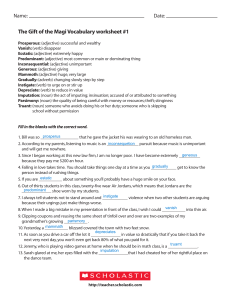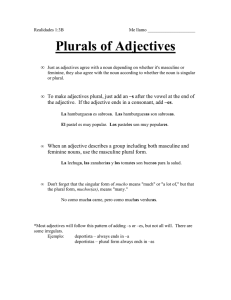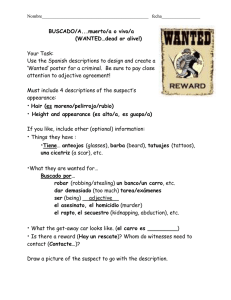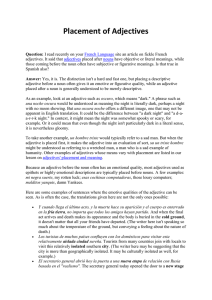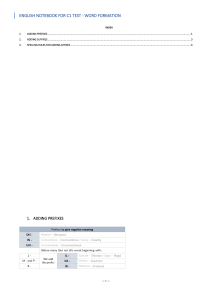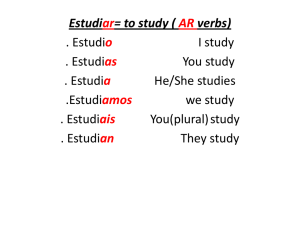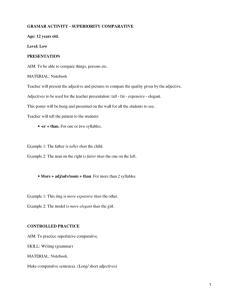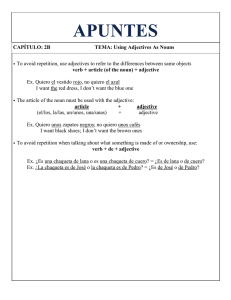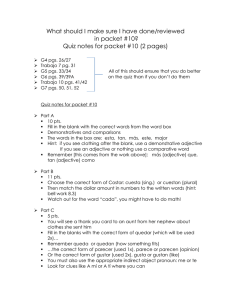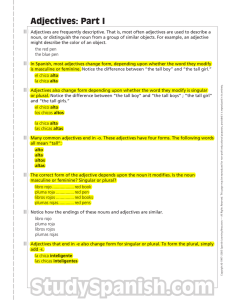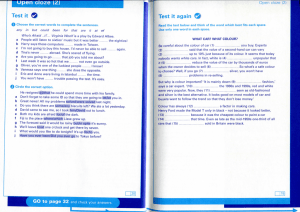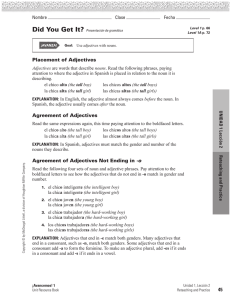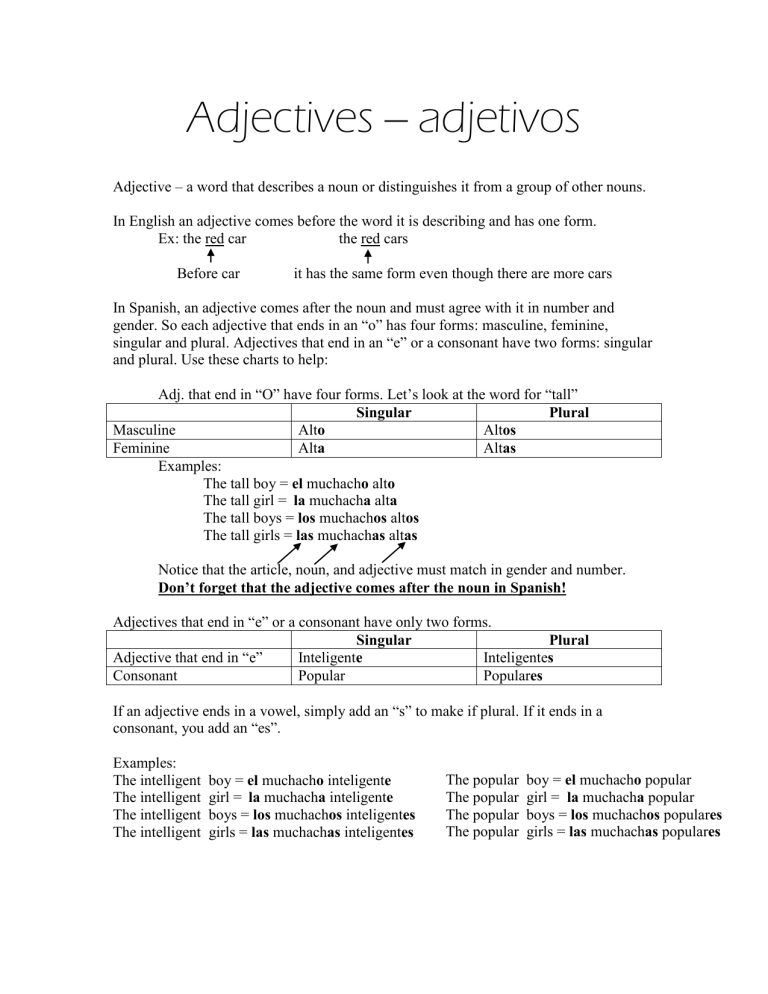
Adjectives – adjetivos Adjective – a word that describes a noun or distinguishes it from a group of other nouns. In English an adjective comes before the word it is describing and has one form. Ex: the red car the red cars Before car it has the same form even though there are more cars In Spanish, an adjective comes after the noun and must agree with it in number and gender. So each adjective that ends in an “o” has four forms: masculine, feminine, singular and plural. Adjectives that end in an “e” or a consonant have two forms: singular and plural. Use these charts to help: Adj. that end in “O” have four forms. Let’s look at the word for “tall” Singular Plural Masculine Alto Altos Feminine Alta Altas Examples: The tall boy = el muchacho alto The tall girl = la muchacha alta The tall boys = los muchachos altos The tall girls = las muchachas altas Notice that the article, noun, and adjective must match in gender and number. Don’t forget that the adjective comes after the noun in Spanish! Adjectives that end in “e” or a consonant have only two forms. Singular Plural Adjective that end in “e” Inteligente Inteligentes Consonant Popular Populares If an adjective ends in a vowel, simply add an “s” to make if plural. If it ends in a consonant, you add an “es”. Examples: The intelligent The intelligent The intelligent The intelligent boy = el muchacho inteligente girl = la muchacha inteligente boys = los muchachos inteligentes girls = las muchachas inteligentes The popular The popular The popular The popular boy = el muchacho popular girl = la muchacha popular boys = los muchachos populares girls = las muchachas populares
